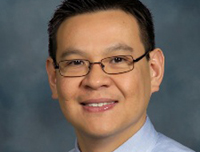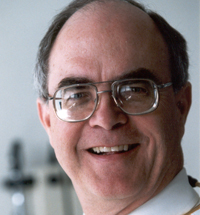 A study by UNMC researchers shows survival for lymphoma patients may depend in part on where they live and are treated.
A study by UNMC researchers shows survival for lymphoma patients may depend in part on where they live and are treated.
The study, published recently in the Journal of Clinical Oncology, examined survival outcomes among patients who live in urban and rural areas and who are treated by university-based or community-based oncologists.
Patients who live in rural areas and receive treatment locally had a 37 percent greater chance of dying than patients in urban areas treated at a university. Rural patients treated locally also had a 26 percent greater chance of death than rural patients treated at a university.
Five-year survival rates for patients were as follows:
- 66 percent for patients from urban areas treated by university-based oncologists;
- 61 percent for patients from rural areas treated by university-based oncologist;
- 59 percent for patients from urban areas treated by community-based oncologists; and
- 51 percent for patients from rural areas treated by community-based oncologists.
 |
Fausto Loberiza, M.D. |
 |
James Armitage, M.D. |
The study suggests that a patient’s area of residence in itself may be an independent risk factor, Dr. Loberiza said.
“We think this may be related to a rural patient’s logistical support structure, which may prevent them from acquiring consistent quality care, probably because of longer distance traveled,” he said.
The retrospective study evaluated 2,330 lymphoma patients from Nebraska and surrounding states between 1982 and 2006.
James Armitage, M.D., senior author of the study, said the study is important in a variety of ways.
“The study emphasizes the role of university medical centers in reaching out to community doctors to improve the care and outcomes of patients regardless of where they live,” said Dr. Armitage, Joe Shapiro Professor of Medicine at UNMC. “It makes us think about how we can improve on delivering care.”
Partial support for the study came from:
- The National Cancer Institute;
- The Department of Health and Human Services; and
- The UNMC Eppley Cancer Center.